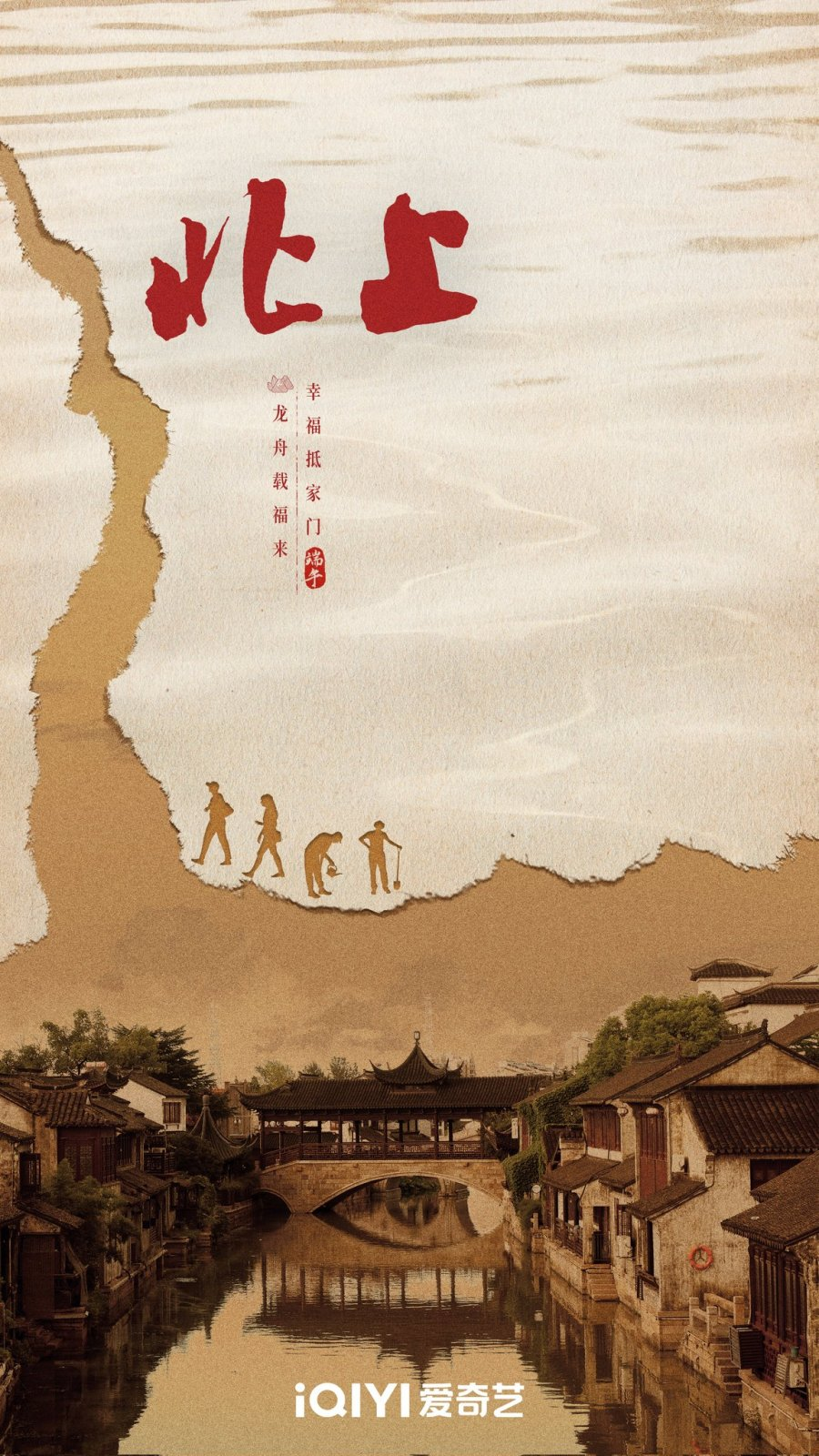 Ryu Kyung Soo quits his job and starts farming strawberries in 'Our Unwritten Seoul'
Ryu Kyung Soo quits his job and starts farming strawberries in 'Our Unwritten Seoul'
Northward follows the life trajectories of a group of young people living along the Grand Canal. The drama is adapted from Xu Ze Chen's novel of the same Chinese name and tells the story of a group of teenagers living along the canal who go from friendship, then separation, and reunion, showcasing their sense of identity with culture. The story depicts how they give back to their hometown and society.
The series showcases the century-long historical transformation of the Grand Canal and the inheritance and promotion of its culture across three generations. In the drama, the Grand Canal is not just a backdrop but also a crucial link that drives character development and the evolution of relationships. The C-drama starred Bai Lu, Ou Hao, Zhai Zi Lu, Gao Zhi Ting, Vanda Margraf, and Liu Heng Fu, among others.
Recently, in an exclusive interview with Beijing News, the show's chief producer, Tan Jun Ping, stated that the biggest challenge in creating Northward was making the audience believe that such a group of people truly lived there and experienced these events. "We have presented the most authentic story possible, hoping that viewers will resonate with it, empathize with the characters, and laugh and cry along with them," she said.
Beijing News: When you first came across the story of Northward, what moved you the most? What was the original intention behind adapting this story into a TV series?
Tan Jun Ping: Initially, it was director Yao Xiao Feng who shared with us his desire to create such a story. Being a Jiangsu native himself, he has a deep emotional connection to the Grand Canal. For me personally, what touched me the most about Northward was the story's [sense of] simplicity. It gives me a very comforting feeling — not the kind of comfort that makes you very happy, but rather something that soothes past wounds, as if it can heal me.
Beijing News: The series has many joyful moments, and its warmth feels truly genuine. Some viewers even said they were moved to tears in every episode. How was this tone established?
Tan Jun Ping: This style wasn't deliberately designed. I think the director followed the development of the characters while creating and filming. In that era, one had to struggle a lot and pursuing dreams was really very difficult. But at the same time, childhood was filled with joy. The period of growing up naturally includes moments of joy and pain. Moreover, I believe that many viewers will relate their own experiences and emotions when they see the protagonists pursuing their dreams. For example, when I watch the series, I think about the time I left my hometown to study and later moved to Beijing to work and struggle [for a better future]. I find many personal points of resonance. So when viewers shed tears, they're not just crying for the characters, they're crying for themselves.
 Beijing News: There have been many TV dramas depicting the transformation of northeast China's industrial sector, but few have focused on the rise and decline of the Grand Canal. In your opinion, what is the unique charm of Northward and the story background of the families living by the canal?
Beijing News: There have been many TV dramas depicting the transformation of northeast China's industrial sector, but few have focused on the rise and decline of the Grand Canal. In your opinion, what is the unique charm of Northward and the story background of the families living by the canal?
Tan Jun Ping: Frankly speaking, to tell a good story about the Grand Canal, the ideal situation is to have creators with such growth experiences. Let's set aside the vast background of the canal. In fact, there are many places in the South where people rely entirely on water for survival, where the whole village depends on the river, and even the basic necessities are all due to the river. This kind of condition is very similar to that of the [people of] Grand Canal.
Beijing News: In your view, what kind of spirit does the 'Canal' represent?
Tan Jun Ping: When I look at the Grand Canal, I feel that there's a sense of destiny behind it. But what we see in Northward is much more full of life, because it's dynamic. The relationship between the canal and the characters is mutual — it becomes a connection for the characters' emotions or a core bond in the neighborhood. Moreover, the story of the canal is intertwined with history as well. It's not just a river; it carries a sense of reliance. Everyone has their own interpretation of the 'Spirit of the Canal.' In my view, it is the inheritance of culture and history blending together.

Beijing News: For today's 'post-00s' generation [who were born since the year 2000] and even younger viewers, what kind of impact or inspiration does Northward hope to give them?
Tan Jun Ping: The 'post-00s' generation is mostly children, and I think they might find it hard to relate to the experience of growing up together with a group of kids. So, first and foremost, I hope they can deepen their familial bonds. Family affection offers a kind of support to people like us, who are far from home, and helps us overcome many difficulties. I also hope they can see the warmth of the Huajie Street neighborhood in the series — how everyone helps each other unconditionally — and that it encourages them to open their hearts and smile no matter who they meet.

Beijing News: Northward can also be seen as an epic of the 'post-90s' generation's youth. How do you view this generation, and what are the marks of the era that are reflected in them?
Tan Jun Ping: First of all, people born in the 1990s grew up during a time of rapid societal change, carrying a lot of societal expectations and pressure. When they were growing up, they experienced a period of rapid economic growth, the rise of the internet, and the influence of globalization. The pressures and competition were different from those of the past [generations]. Because of these defining symbols, we hope that through Northward, audiences can better understand the 'post-90s' generation, what societal values and expectations they carry.
Source: Beijing News











